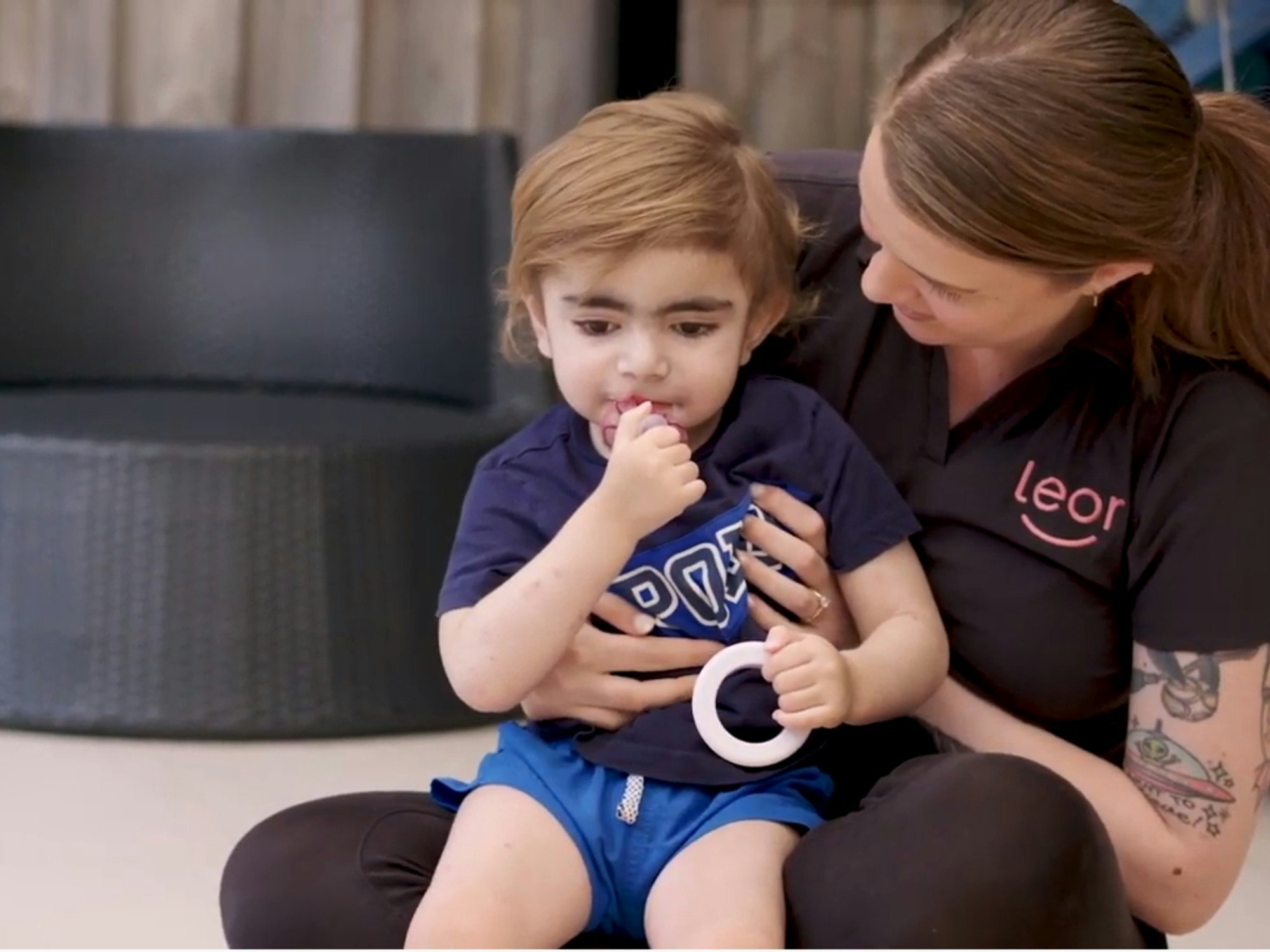Timing crucial when accessing early intervention supports
Last updated

New South Wales parent Gezel Saba is seeing her son thrive as a result of accessing in-home early intervention support through the National Disability Insurance Scheme (NDIS).
“Without Leor, our NDIS provider, it would be extremely difficult to get the early intervention our son requires that could possibly allow him to transition to a mainstream pre-school,” she says.
Ms Saba is one of almost 9,000 people who accessed NDIS early childhood early intervention support in the previous three months across Australia, while around 1,000 children are waiting on early intervention support at any given time.
Andrea Christie-David, founder and Managing Director of family in-home care provider, Leor, is a mother of three young children herself and wanted to create a model to allow families of children with disabilities to access early intervention services in the home.
“A family that can access early intervention increases their chances of engaging their child in mainstream schooling, increasing academic performance, and minimising the need for interventions later in life,” she says.
“If a child has effective access to early intervention, they may not need to maintain access to the NDIS after they turn seven, so timing is crucial in terms of giving children support before they start school or in those first few years of schooling.”
Ms Christie-Davis says a model of care that integrates recommendations from allied health professionals – including occupational therapists, speech pathologists, and psychologists – who work with families and educators, provides the best chance of children meeting their NDIS goals.
“Leor’s allied health professionals provide our educators with assessments for children to complete during their sessions. These are then reported back to our allied health team through the use of written reports as well as the use of new technologies, so that educators can incorporate therapeutic recommendations into the child’s program,” she explains.
For parents accessing early childhood early intervention under the NDIS, Ms Christie-David has three top tips:
-
Decide what kind of provider will work best for your family – monthly therapy appointments; in-home sessions; or learning support in mainstream childcare or schooling.
-
If you are accessing mainstream childcare or your child is attending school, ask your child’s educators how they will work with your child’s allied health team and how they will incorporate their recommendations into your child’s program.
-
Ask for practical tips that will allow you to incorporate therapeutic recommendations into your child’s daily routine, which will result in your child absorbing and retaining this knowledge in the longer term.
“We know that the earlier children access interventions, the better their long term outcomes,” she adds.
“The use of innovative approaches to accessing allied health recommendations means children are making progress sooner without waiting in long waitlists for face to face appointments.”
To learn more about Leor, visit their website.